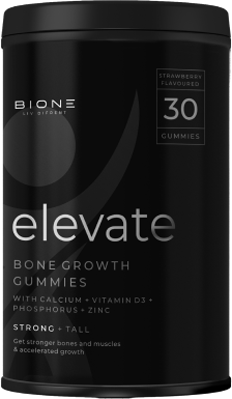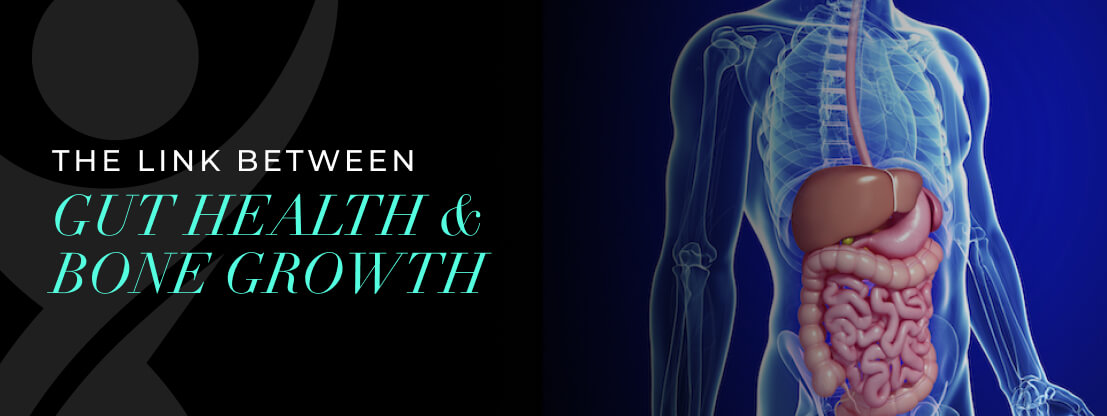The gut microbiota, consisting of bacteria, viruses, and parasites, helps us digest food and extract nutrients, including those important for bone health. Imbalances in the gut microbiota caused by factors like unhealthy diets, antibiotics, stress, and lack of exercise can disrupt bone health and growth as well. Recent studies are investigating how the gut microbiome affects nutrient absorption, immune responses, and communication between the gut, brain, and bones. This can contribute to conditions like osteoporosis, osteoarthritis, rheumatoid arthritis, and bone tumours. In this blog, we will explore the connection between gut health and bone growth by examining important factors.
Role of Gut Microbiome in Nutrient Absorption
The gut microbiome consists of a community of different organisms, including bacteria, viruses, and other microorganisms, that reside in our intestines. These organisms play a very important role in maintaining one’s overall health, firstly they aid in digesting substances that our body cannot break down by itself like dietary fiber.
The gut uses its special enzymes to help break down dietary fiber, which is found in plant-based foods like fruits, legumes, and vegetables. It converts this fiber into short-chain fatty acids that keep the cells healthy and provide the body with energy.
Furthermore, the enzymes produced by the gut tests help protect against inflammatory bowel disease, obesity, type 2 diabetes, and colorectal cancer. Gut tests analyse the microbiota’s composition, offering insights into gut health, imbalances, and associations with a specific condition.
Additionally, they also produce important vitamins, transform bile acids, and create both essential and non-essential amino acids. When the types of bacteria in our gut change, it can have either positive or negative effects on our bones. This is because the gut microbiota has the ability to influence processes that directly impact our bone health, such as inflammation and how we absorb nutrients.
Exploring a Potential Gut–Brain–Bone Axis
The gut-brain axis is a connection between the gut and brain which facilitates communication. Communication occurs through signals sent by nerves, hormones, and the immune system. The process starts with the brain initially sending signals to the gut, this influences processes which occur in the gut such as digestion, mucus production, immune function and composition of gut microbes. After receiving signals from the brain, the gut then signals back to the brain by producing substances called metabolites, which are sensed by special cells in the gut. These signals can affect brain activity and the immune system.
Recent research has demonstrated that serotonin, a crucial chemical messenger, plays a role in regulating bone health through interactions with the gut microbiota. When there is an excess of serotonin derived from the gut, it can disrupt the process of bone formation, hindering the strength and health of our bones and resulting in bone loss. Assessing gut health through gut testing or microbiome testing provides valuable insights into the interplay between the gut-brain axis and bone health
Gut Microbiota and Bone Diseases: Connection and Communication
The bacteria living in our gut can be connected to various diseases and conditions. One important organ in our body is our bones, and they require a balance between two types of cells called osteoblasts and osteoclasts to stay healthy. When there is an imbalance between these cells, it can lead to bone diseases. Interestingly, studies have found a link between the bacteria in our gut and these bone diseases.
In the following paragraphs, we will explore how the communication between gut bacteria and our body can influence the development and progression of these bone diseases.
Osteoporosis
A decrease in sex hormone levels, such as estrogen in women and testosterone in men, can compromise the protective barrier of the gut. This weakened barrier is less able to prevent the entry of bacteria and other harmful substances into the body. Additionally, this hormonal decline can contribute to conditions like osteoporosis, which weaken bones and increase the risk of fractures. Conducting gut tests and microbiome tests, such as stool analysis and DNA sequencing, can help assess the composition of gut bacteria, identify imbalances, and determine overall gut health.
Osteoarthritis
Osteoarthritis (OA) occurs when the tissues in our joints gradually break down, causing pain, stiffness, and limited mobility. It commonly affects older individuals but can occur at any age. Recent studies suggest a possible connection between gut bacteria and OA development. An imbalance in gut bacteria can lead to chronic inflammation, worsening OA symptoms and damaging the joints. Harmful gut bacteria can produce substances like lipopolysaccharide (LPS), which promote inflammation and further harm the joints. Higher levels of LPS are associated with more severe symptoms and increased joint inflammation in people with OA. This highlights the relationship between gut health and joint health in OA. Conducting gut health or microbiome tests, including nutrient testing, hormone testing, and bone density tests, can indeed help in identifying potential symptoms and underlying factors related to osteoporosis
How Bone Growth Gummies Can help?
Bone growth gummy supplements are enjoyable due to their sweet, sugary taste. They are available in different flavours and colours, making them a more convenient option for children who struggle with swallowing pills or experience pill fatigue. Our bone growth gummies are natural and formulated with calcium, vitamin D3, zinc, and phosphorus, which aid in natural height growth. The combination of vitamin D and calcium enhances bone density, while calcium helps in building strong bones.
Conclusion
A healthy gut is crucial for strong bones and is also involved in the gut-brain-bone axis. This axis represents the communication between the gut microbiota, brain, and bones, which influences bone health. By maintaining a healthy gut, we can optimise this axis and promote overall bone health while reducing the risk of conditions such as osteoporosis and osteoarthritis.











